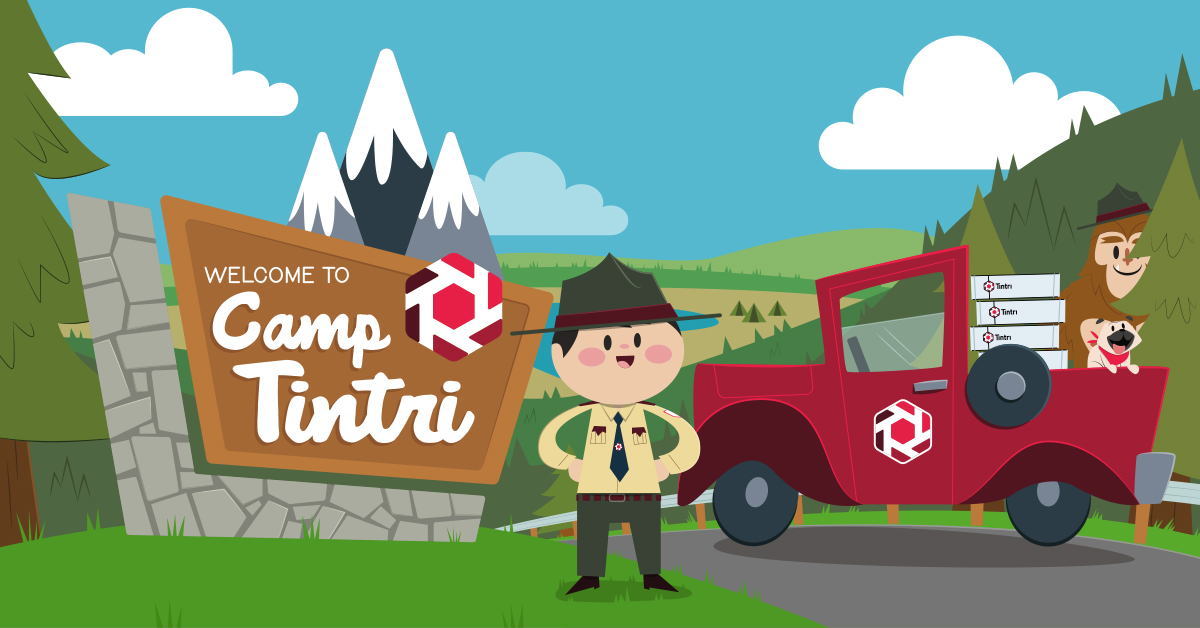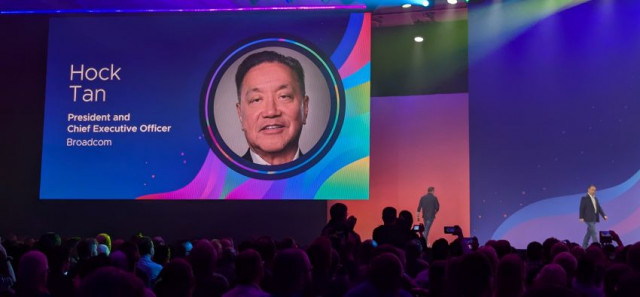The Opening Keynote: A New Era Begins
The anticipation was palpable as Hock Tan, CEO of Broadcom, took the stage. His keynote set the tone for the event, addressing the elephant in the room - the future of VMware under Broadcom's ownership. Tan didn't mince words, stating, "Ten years ago, your CEO, your board of directors, fell in love with the promise of the public cloud and it drove you to the public cloud. Because of this, I say to you, you all are suffering from PTSD." He went on to highlight the "three Cs of cloud": cost, complexity, and compliance with regulatory policies, which can be expensive.
Tan's vision was clear: "It's very simple: the future of the enterprise - your enterprises - is private cloud. It's about staying on-prem and in control." This bold statement set the stage for the announcements to come, positioning VMware as the cornerstone of Broadcom's software strategy.
VMware Cloud Foundation 9: The Private Cloud Revolution
The star of the show was undoubtedly VMware Cloud Foundation 9 (VCF 9), which Paul Turner, VP of products for Broadcom's VCF division, described as "delivering a private cloud for our customers." This isn't just an incremental update; it's a leap from version 5.2 to 9, signaling a major evolution in VMware's offerings.
VCF 9 aims to be the only private cloud vendor organizations will ever need. It goes beyond mere virtualization, encompassing the entire datacenter - compute, storage, networking, automation, and operations. The goal? To offer a unified and tightly integrated platform that can scale to sizes equal to public clouds but with enterprise security and performance.
Key features of VCF 9 include:
- A self-service cloud portal for provisioning services
- Reduction of management consoles from a dozen-plus to one
- Advanced memory tiering using NVM-Express for AI and data-heavy workloads
- Integrated multi-tenancy for better support of multiple business groups
- Virtual private clouds as a native networking-as-a-service experience
VMware is positioning VCF 9 as "AWS on-prem," capable of fulfilling the promise of public cloud-like capabilities in a private environment. With 80% of enterprise data still on-premises, this could be a game-changer for many organizations.
Tanzu 10: Accelerating Application Development
Purnima Padmanabhan, VP and GM of Broadcom's Tanzu Division, introduced Tanzu Platform 10, emphasizing that "app velocity is equivalent to business velocity." This update to VMware's Kubernetes management platform is designed to simplify the developer experience while increasing application development velocity.
Tanzu Platform 10 integrates with public clouds, Kubernetes, and VMware Cloud Foundation, providing a unified developer experience regardless of the underlying platform. New features include:
- Tighter integration with Spring, the Java-based framework for application development
- Tanzu AI Solutions, a set of tools for adding AI capabilities within apps
- Java-based APIs to access LLM models
- An OpenAI-compatible API gateway to broker hundreds of LLMs
- An observability toolkit for testing and troubleshooting AI apps
These enhancements aim to help enterprises, particularly those relying on Java, to stand up their AI-enhanced applications more quickly and securely.
Private AI: Democratizing AI for the Enterprise
VMware's Private AI initiative gained significant traction at this year's Explore. The company unveiled its Private AI Foundation, an architectural approach that balances the business gains from AI with privacy and compliance requirements.
Key announcements in this space include:
- A new model store for implementing model governance and security
- The Private AI Open Ecosystem built on VMware Cloud Foundation
- Partnerships with chip manufacturers (AMD, Nvidia, Intel), server and storage providers (Dell, HPE, Lenovo), and systems integrators (NTT Data, HCL, Kyndryl, Wipro)
These initiatives aim to democratize generative AI and spark business innovation "for all enterprises," allowing organizations to leverage AI capabilities without compromising on data privacy or security.
Security and Edge Computing: Addressing Modern Challenges
While not the primary focus, VMware didn't neglect security and edge computing. The company announced enhancements to its VMware SASE (Secure Access Service Edge) platform, introducing the "Edge Compute Stack." This promises to bring the power of the data center to the network edge, opening up new possibilities in sectors like manufacturing, retail, and smart cities.
The Broadcom Effect: Streamlining and Integration
Broadcom's influence was evident throughout the event, particularly in the push to simplify VMware's offerings. The integration of previously separate features and services into VCF 9 is a key part of this strategy. Broadcom is also making VCF 9 available through multiple avenues, including hyperscalers, managed service providers, OEMs, and its extensive network of distributors and resellers.
The changes in licensing and pricing models were a hot topic among attendees. While Broadcom aims to simplify the purchasing process, some customers expressed concerns about potential cost increases. This remains an area to watch in the coming months.
Looking Ahead: The Road to 2025
As VMware Explore 2024 drew to a close, it was clear that this wasn't just another iteration of the company's annual conference. It marked the beginning of a new chapter for VMware, one that blends its virtualization legacy with Broadcom's hardware expertise and ambitious software strategy.
The roadmap presented for the coming year is ambitious, with promises of deeper integration between VMware's software stack and Broadcom's hardware solutions. The focus on private cloud, AI integration, and simplified management suggests that VMware, under Broadcom's guidance, is positioning itself as a key player in the next generation of enterprise IT.
Conclusion: A Promising, If Uncertain, Future
As I boarded my flight home from Las Vegas, I couldn't help but feel a sense of cautious optimism about VMware's future. The innovations unveiled at VMware Explore 2024 demonstrate that the company hasn't lost its edge in the rapidly evolving world of enterprise technology.
VMware Explore 2024 demonstrated that despite the changes brought by the Broadcom acquisition, VMware remains a central player in enterprise IT strategy. The event showcased a clear vision for the future, with AI, multi-cloud, and edge computing emerging as key pillars of innovation.
As organizations continue to navigate complex digital transformation initiatives, VMware's evolving portfolio - now backed by Broadcom's resources and enterprise software expertise - appears well-positioned to address the challenges of modern IT environments.
For now, what happens in Vegas certainly won't stay in Vegas - it will be reverberating through data centers and boardrooms around the world for months to come.
For those unable to attend the Las Vegas event, VMware Explore will have its European edition in Barcelona from November 4-7, 2024. This will provide another opportunity for customers, partners, and IT professionals to engage with the latest developments in the VMware ecosystem.








